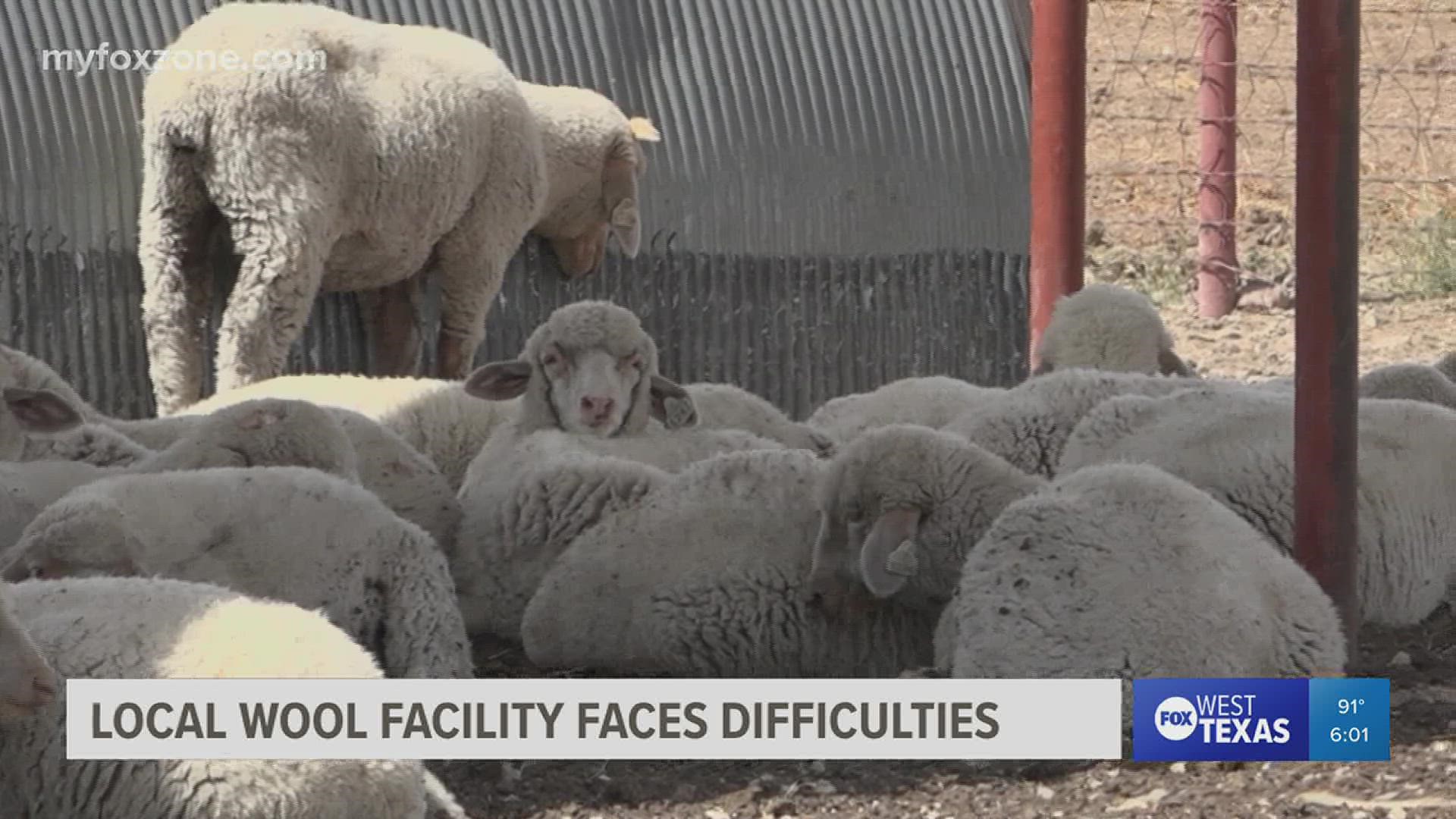SAN ANGELO, Texas — The wool industry has not been immune to inflation, supply chain issues and issues surrounding the Texas drought.
Texas A&M AgriLife Research and Extension Center Associate Professor and Extension Sheep & Goat Specialist Dr. Reid Redden said this year hasn’t been the easiest at the wool testing facility.
“Unfortunately, the wool industry hasn't been faring too well. It's kind of just maintained at that kind of mid to low range. The prices really haven't gone up even though maybe there's some pretty decent demand for the final products. Generally by the time all of the inflation and shipping and energy costs that come with manufacturing, ranchers don’t see an increase,” Redden said.
In addition to that, the drought has caused some of the livestock such as goats and sheep to lack needed water. Ranchers are left with parched animals and have to make tough decisions such as having to sell some livestock and prepare for less wool production next year.
“With drought, everyone's either not producing a whole lot of hay or a lot of the farmers aren't going to be producing as much grains. And a lot of people are buying hay to try to manage through the drought. So the cost of feed has gone up, so you don't have any feed in the pasture,” Redden said.
According to the Craft Industry Alliance, the price of wool has increased 4.57% since the beginning of 2022, and rising demand for cotton coupled with lower production created an 11-year high for the cost of cotton in early May.
To educate more farmers, livestock producers and other interested people, Texas A&M AgriLife is hosting its 49th Annual Sheep and Goat Field Day and 2022 Texas Sheep and Goat Expo. At the expo, there will be experts in the industry to help meet the needs of a very diverse sheep and goat industry.
Texas A&M Agrilife said this event draws producers from across Texas, out of state and as far away as Australia. Expo coordinator Josh Blanek said the expo is the largest event of its type in Texas and one of the largest sheep and goat industry educational programs in the world.
“It's tremendously important to get the new generation involved and to keep it going. I mean, it's no secret that our average age in agriculture is over 50 years old. So we've got to keep training the new generation to come in and take over and keep everything going,” Blanek said.
From addressing the concerns and challenges facing today’s producer to exciting changes happening in the industry involving technological advances and new service, the event covers a range of industry topics.
More information can be found on the Texas Agrilife website.

